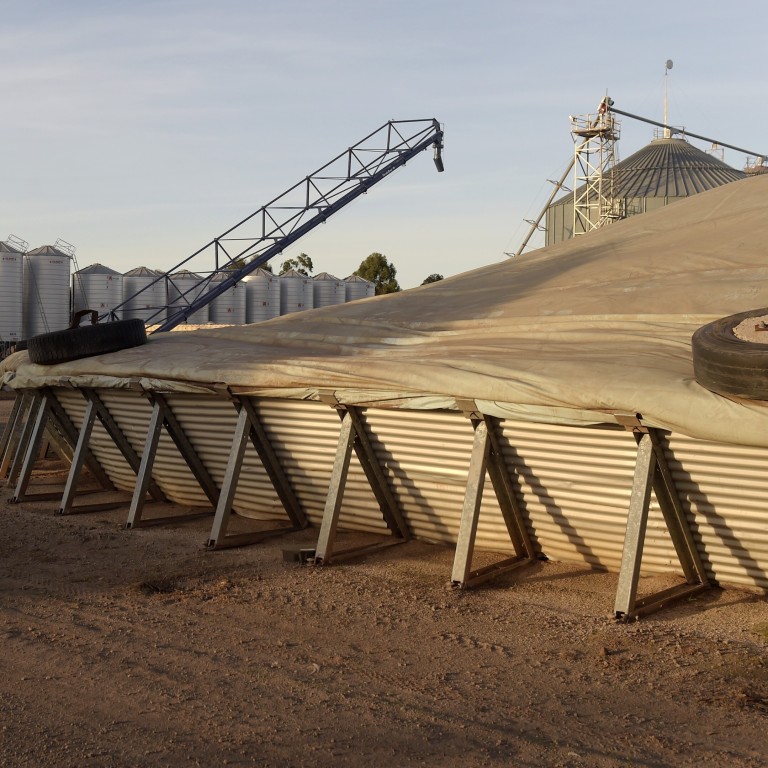
China-Australia relations: barley dispute going to WTO as headwinds loom in Australia’s alternative markets
- Australian government will escalate the resolution process by asking World Trade Organization to establish a dispute-settlement panel
- A trade resolution at WTO could take years. Meanwhile, Australia has looked to new markets for its barley exports, particularly Saudi Arabia and Mexico
Informal talks between beleaguered trading partners China and Australia over their anti-dumping dispute involving barley have hit a wall, while some of Australia’s redirected barley exports could face headwinds in the Middle East.
The [Australian] Government is committed to defending the interests of Australian barley producers
“While there was constructive engagement on both sides, these consultations did not resolve our concerns,” Tehan said in a statement. “Australia’s barley trade with China represents a great deal of hard work on both sides over many years. The anti-dumping and countervailing duties imposed on Australian barley exports are not consistent with China’s WTO obligations.
“The [Australian] Government is committed to defending the interests of Australian barley producers.”
The total duties of 80.5 per cent destroyed the competitiveness of Australian barley in the Chinese market, prompting Australia to lodge a complaint at the WTO in December. The dispute-resolution process included informal discussions before a formal adjudication by a WTO panel.
Tehan revealed on Tuesday that those informal discussions with China have thus far been held at the “officials” level, rather than the ministerial level.
“I’m still waiting for a response to the letter that I sent earlier in the year, but our officials have dealt with the Chinese officials on this matter, and we’ve now informed China that we will be seeking to take this matter to the WTO and to establish a dispute-settlement panel,” he said in an interview with Sky News Australia.
“I’m happy to be patient in waiting for a reply. I sent a very constructive letter seeking very constructive engagement, and now it’s just time to be patient, and there’s plenty else for me to be doing in my portfolio.”
A trade resolution at the WTO could take years. Meanwhile, Australia has looked to new markets for its barley exports, particularly Saudi Arabia and Mexico.
In January, Saudi Arabia’s central grains purchaser – the Saudi Grains Organization (SAGO) – bought 660,000 tonnes of feed barley from some of Australia’s biggest exporters, including Glencore’s Viterra and GrainCorp. And last month, Australia’s biggest grains exporter, CBH Group, signed a deal to ship 30,000 tonnes of malting barley to Heineken in Mexico.
But new markets such as Saudi Arabia look to pose new challenges, especially with a reduction in imports following the liberalisation of the country’s barley-purchasing procedures.
By the end of this month, Saudi Arabia’s imports of barley feed for its camels, goats and sheep will be handled by 10 to 15 private importers, rather than the state-based central buyer, SAGO.
The US government, which also exports barley to Saudi Arabia, says the move, alongside discontinued subsidies for most animal feed imports, will reduce Saudi Arabia’s barley imports.
The US Department of Agriculture expects Saudi Arabia’s barley imports for the 2020-21 marketing year to “significantly reduce”, forecasting an 18 per cent decline to 6.2 million tonnes. Saudi Arabia is the world’s third-largest importer of barley.
Andrew Whitelaw, an agricultural analyst with consultancy Thomas Elder Markets, agreed that Saudi Arabia’s privatisation move could create some uncertainty by potentially reducing transparency in its barley-buying process. Some buyers could also move away from straight barley – which Australia supplies – to compound feeds that are a mixture of several grains.
While there are risks ahead, the new Saudi Arabian market has helped alleviate some of the anxiety experienced by Australian barley exporters who can no longer rely on China as a trading partner, Whitelaw said.
“If they [Saudi Arabia importers] switched to compounds, it would likely see reduced overall barley imports,” Whitelaw said. “However, this is unlikely to be an overnight move.
“There have been attempts to encourage compound feeding in Saudi Arabia in recent years. However, Bedouin farmers still prefer feeding straight barley.”

